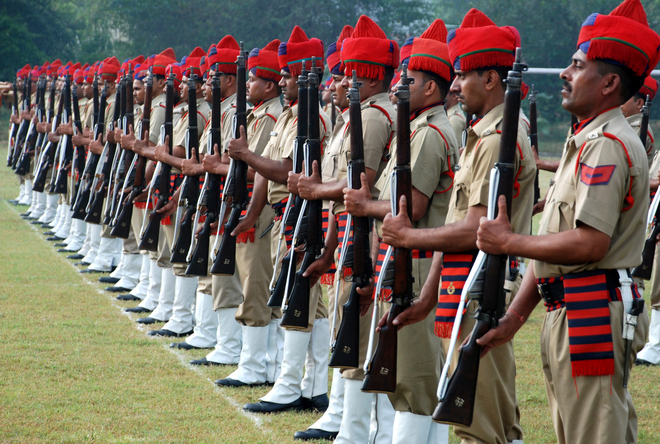Naveen S Garewal
Tribune News Service
Chandigarh, July 4
The Manohar Lal Khattar-led BJP government has scrapped the recruitment process for selection of 9,345 constables in the Haryana Police, directly affecting over 70,000 aspirants who had passed various stages of the process and had become eligible for the interview.
The recruitment process began in the previous Congress regime. It saw over 7.5 lakh applicants go through various stages of elimination, leaving about 10 per cent of them to reach the interview stage. Sources said the government suspected nepotism, even though there have been no complaints so far.
In the process, the Haryana Government has not only disbanded the Haryana Police Recruitment Board (HPRB), but also violated a Supreme Court directive by reverting future recruitments to the Haryana Staff Selection Commission (HSSC). Following a Supreme Court directive for implementing recommendations of the National Police Commission, the Union Government had formed the Bureau of Police Research and Development (BPR&D), a nodal agency for development of human resources in the police force. This was meant to help every state establish independent police recruitment boards. Consequently, many of the 74,233 candidates who had qualified for the interview now face the possibility of becoming ineligible as they would turn overage. The recruitment process that started in November 2013 required candidates to be between 18 and 25 at the time of application.
Besides all candidates who were over 23 years at that time, many others will also become ineligible based on when the fresh recruitment process will be initiated.
It was the first time that the entire recruitment process was videographed and techniques such as Radio Frequency Identifying Device (RFID) were used to time the running speed of candidates, eliminating the possibility of altering results.
The Haryana Government had spent around Rs 11 crore on the process that was conducted by the HPRB and supervised by the board Chairman, Brig JS Mann (retd), who was especially brought in for the recruitment process on the basis of his experience of recruiting jawans for the Army.
In compliance with the directions of the Supreme Court, the Haryana Government had amended the Haryana Police Act, 2007, to set up the HPRB on May 15, 2013, that started functioning in October 2013.
The board comprised five members. On the request of the Director General of Police, Haryana, the HPRB through three advertisements invited online applications for recruitment of 8,275 male constables, 334 female constables and another 736 constables for the India Reserve Battalions. In all 7,99,000 applications were received.
After the physical measurement test and the physical efficiency test (PET) held between June 26 and July 1, 2014, 74,233 candidates qualified for the interview. The interviews for recruiting 334 female constables were completed in July 2014 and that for recruiting 8,275 male constables was in progress. Following the regime change, all interviews were stopped on October 28, 2014, by the Khattar government. The interviews for the 736 constables for the IRB were yet to start.
There were no complaints against the HPRB. Even during the Model Code of Conduct imposed by the Election Commission of India from September 12 to October 25, 2014, the ECI had no objection to continuation of the interviews, but restrained the board from declaring any result.
However, two days after assuming the office, the Khattar government stopped all ongoing interviews and subsequently scrapped the HPRB through the Haryana Police (Amendment) Ordinance, 2015, and handed over the recruitment process to the Haryana Staff Selection Board.
This violates the directive of the Supreme Court in the civil writ petition titled Prakash Singh and others that sought directions to implement the recommendations of the National Police Commission. One of the recommendations was to have independent recruitment boards for recruitment to the police force.
Unlock Exclusive Insights with The Tribune Premium
Take your experience further with Premium access.
Thought-provoking Opinions, Expert Analysis, In-depth Insights and other Member Only Benefits
Already a Member? Sign In Now










